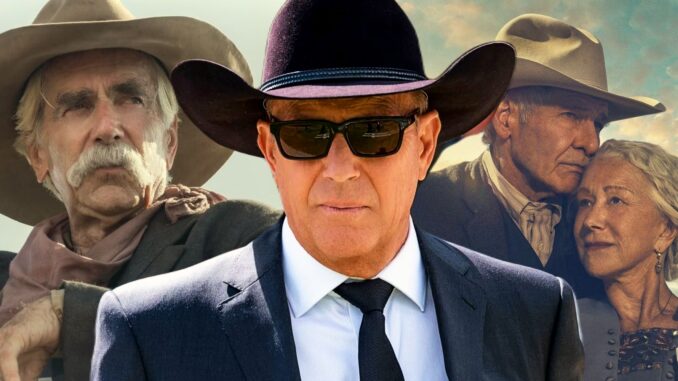
The King’s Farewell: When the Roots Get Too Deep for the Branch
Yellowstone. The word alone conjures images of boundless wilderness, untamed power, and a brutal beauty that demands respect and commands devotion. For millions, it's also the name of a television phenomenon, a sprawling modern epic where the land is both prize and curse, and the Dutton family, led by the indomitable John Dutton, fights to hold onto its legacy with fists, lawsuits, and a chilling resolve. At the heart of this empire, both fictional and televisual, stood Kevin Costner, a man whose very silhouette seemed born of the Western landscape, whose gravelly voice and weather-beaten gravitas anchored its very being. So when news began to trickle out, then roar, that Kevin Costner was leaving Yellowstone, it felt less like an actor departing a show and more like a king abdicating his throne, a seismic shift in the cultural landscape that left fans reeling, pondering how an empire could possibly stand without its emperor.
Costner’s portrayal of John Dutton was more than mere acting; it was an embodiment. He didn’t just play a rancher; he was the ranch, its history etched into his craggy face, its dust-choked winds whispering through his every line. Dutton was a man of contradictions – fiercely protective, deeply flawed, capable of profound love and chilling ruthlessness. He was the root system of the sprawling Yellowstone tree, drawing life from the land and feeding it to his complicated, often volatile, offspring. For five seasons, Costner’s presence was a visceral, undeniable force, giving the high-stakes melodrama a grounding in rugged authenticity. His departure, therefore, wasn't just a plot point; it was a conceptual gut-punch to the very premise of the show.
The “talks about leaving” were never simple. They were whispers that grew into a crescendo of tabloid speculation, punctuated by conflicting reports and a palpable sense of confusion. Initially, the narratives swirled around scheduling conflicts – the demands of the show’s intense production schedule clashing with Costner’s other ambitions, particularly his deeply personal, multi-part Western film saga, Horizon. Later, reports hinted at creative differences, budgetary disputes, and even a perceived lack of appreciation. For fans, it was a messy, heartbreaking saga playing out in public, dismantling the illusion of a tightly knit family, both on and off screen.
Yet, when Costner finally spoke directly, the narrative shifted, becoming less about acrimony and more about the relentless pull of one's artistic North Star. He painted a picture not of a man fleeing a bad situation, but of one drawn irrevocably towards a dream he had nurtured for decades. Horizon, he explained, wasn’t just another project; it was a passion project, a sprawling Western epic he had poured his soul, and significant personal fortune, into. It was, in many ways, his own Dances with Wolves – a deeply personal, directorial vision he felt compelled to bring to life, even if it meant sacrificing his ubiquitous role on television’s biggest show.
This wasn't a casual decision; it was a profound choice, a public declaration that some ambitions outweigh even the golden handcuffs of a hit series. Costner, the seasoned filmmaker and actor, understood the implications. He knew the void he would leave, the narrative tightrope Taylor Sheridan would have to walk, and the disappointment of a legion of fans. But for an artist, sometimes the creative impulse transcends the commercial, the personal narrative more compelling than the public one. His leaving, therefore, becomes an illustrative essay in itself on the nature of creative sacrifice: a recognition that to build something entirely new, sometimes you must dismantle a cornerstone of what already exists.
The legacy of Kevin Costner’s John Dutton will undoubtedly linger over the remaining seasons of Yellowstone, a spectral presence in the mountain shadows, an echoing gravelly voice in the windswept valleys. His departure is a poignant reminder that even the most deeply rooted characters are, ultimately, creations tethered to human choice and ambition. The king has left his throne, not for exile, but for a new kingdom, one he is building with his own hands, brick by dusty brick, on his own Horizon. And in that defiant pursuit of a personal vision, Costner, like Dutton himself, remains true to the rugged, independent spirit of the American West he has so masterfully portrayed. The show will go on, undoubtedly, but the absence of its patriarch will forever be a testament to the powerful, complex reasons a king might choose to walk away from his crown.
